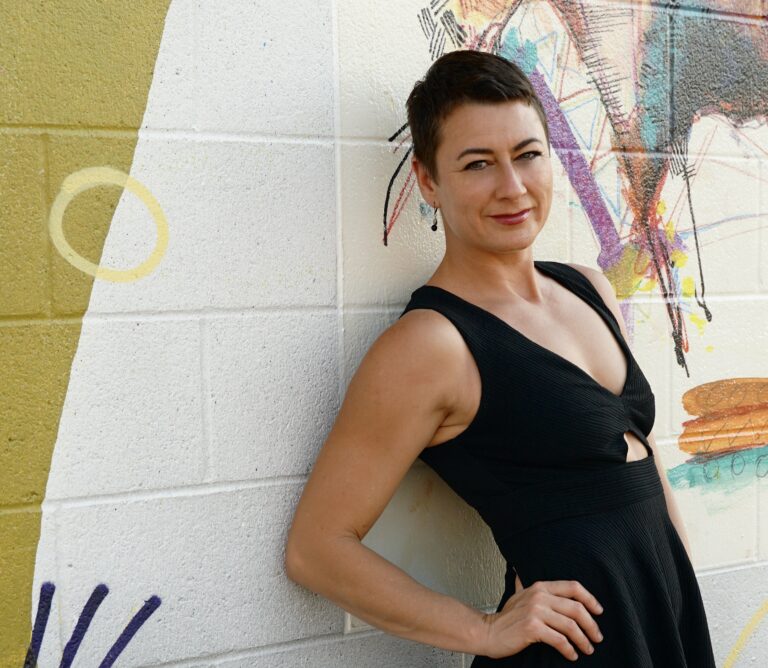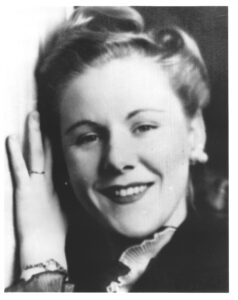A story of hypervigilance:
But what happens when those needs are met in inconsistent or unpredictable ways?
A baby instinctively tries different strategies: crying, screaming, or pitching a fit as a way of signaling discomfort or seeking relief. Yet, when caregivers are absent, unresponsive, or emotionally disconnected, the baby’s efforts may not yield the level of comfort they seek. Over time, some infants begin to unknowingly internalize this feedback–that wanting and needing is somehow too much. This can even lead to self-soothing mechanisms starting to take root—as an early adaptation to unmet needs.
As early as infancy, some of us began to understand that our needs were “too much” and that shrinking them to the bare minimum made us more acceptable.

For those whose care was unpredictable, dissociated, absent, or inconsistent, we learned that to receive attention, love, and connection, we had to mold our natural selves to align with the moods and dispositions of our caregivers.
This early adaptation may foster a state of hypervigilance—a chronic, heightened awareness of others’ body language, expressions, moods, and energy. Over time, this deep attunement to others’ needs may shape us into empaths–someone who is able to experience the emotions of others at a deeper level than empathy. At such a tender age, these individuals may began striving to create the longed for harmony by becoming the harmonizer, the attentive one, the peacekeeper.
As empaths grow and move through life, this state of chronic alertness and over-attunement to others comes at a cost. It can overwhelm the nervous system, leaving us drained and exhausted. What started as a survival mechanism to maintain safety and harmony becomes deeply ingrained, shaping the way empaths engage in society and in relationships—especially the closest ones.
Though society often upholds selflessness as the ultimate act of kindness, its evil twin, self-abandonment, creates internal conflict. By believing that self-abandoning is a selfless act of kindness, it leaves empaths to continuously implode on themselves, ultimately draining the vital resources and capacities that allow them to be available for others, and often at expense of their physical wellbeing.
We often conclude that to know the world we must hide ourselves. ~Mark Nepo
For me, this pattern took root in my most formative years. I internalized the belief that my needs were overwhelming, that if I expressed them with too much force it might lead to abandonment. Before I could even speak, my neural pathways were wiring the message that survival meant shrinking myself—needing less, asking for less, being less.
Fast forward through decades of shrinking and self-abandoning and even recognizing my own needs remains a challenge, let alone expressing them in clear, actionable ways. This early wiring set the stage for a lifetime of people-pleasing, shrinking, and an endless quest for approval.
I carried the belief that to be lovable, I had to do things and be things that others wanted, admired, or respected. Simply being wasn’t enough—I wasn’t “adore-able” just as I was. To feel accepted, I had to make others feel good, avoid creating discomfort or conflict, and hope they’d at least tolerate me. I embodied the message that a loveable person is selfless and kind, gets everything right, and is also wealthy and beautiful and educated and articulate and fit and organized and… and… and…
Part of this endless quest for approval led me to an exhausting cycle of overachieving and wearing myself thin in the pursuit of outward results. I spent years pushing myself, pressuring myself and ultimately feeling like I was never enough for not being able to Do MORE and Be MORE. I wanted to do and be all the things that I thought would bring me the love and connection I deeply craved.
As self-love began to dawn in my 30s, I started to see how exhausting this cycle of earning approval truly was. Slowly, I began to realize that loving myself was not only possible but easier than chasing the fleeting, inconsistent validation of others. Untangling the brain wiring of constant self-abandonment has been a slow process. It feels risky to show up authentically and let go of the idea that love must be earned through approval seeking, accommodating, or deferring to others.
Ultimately I got hit with the NEWSFLASH: Approval does not equate to self worth.
As I round the bend of another decade, the empathic overachiever in me is yearning for rest and peace, exhausted by the constant monitoring, self-censorship, and pressure. I’m ready to relax into myself and I’m learning, moment by moment, to step into my authenticity rather than the depleting hyper-attunement I’ve been accustomed to. I start this process by releasing the belief that I need to become something outside of myself to be worthy or accepted and trust that being Me is enough.
Paradoxically I want to ease into the future by staying in the present moment—this powerful NOW that is all we ever actually have. I’m ready to shed the ambitions, the 10x, the gunning towards my goals and awake to what is here, what is now, what is arising within me in this moment.
ready to shed the ambitions, the 10x, the gunning towards my goals and awake to what is here, what is now, what is arising within me in this moment.
A new year has just begun and I’m committed to releasing the people-pleasing patterns by taking up space and expressing my needs. When my inner survival alarms go off, warning me that my behavior will lead to abandonment, I do my best to pause and lean into those uncomfortable feelings, allowing them both to be witnessed and to move through me. These feelings deserve to be allowed and experienced in my body, but they are no longer permitted to run my life.
I am allowing myself to simply exist as I am – without needing to bend or twist into what I think others want or expect. And as I become aligned with the energy of my own truth, instead of trying to manifest something through effort or grind, I TRUST that this process will naturally create the life I’m meant to live and I simply allow in the most important things–love and connection.
What I hadn’t known before is that the love and connection is already here and now, and it always has been. I don’t have to go outside of myself to find it. I don’t have to earn it. I don’t have to strive for it. I can simply allow it, from within and without. As my mindset has begun to shift toward allowing love and connection in my life, in its limitless forms, I’ve never felt more alive, more whole, more complete.
We will not lose anything by being more of our True selves ~Allison Holley
In no longer needing to contort myself or seek approval, hypervigilance loosens its grip. My brain learns to relax and my deep yearning for inner peace and easefulness is met through living from a place of authentic self-expression.
Does this vision of being resonate with you? What part of you is yearning for rest?














